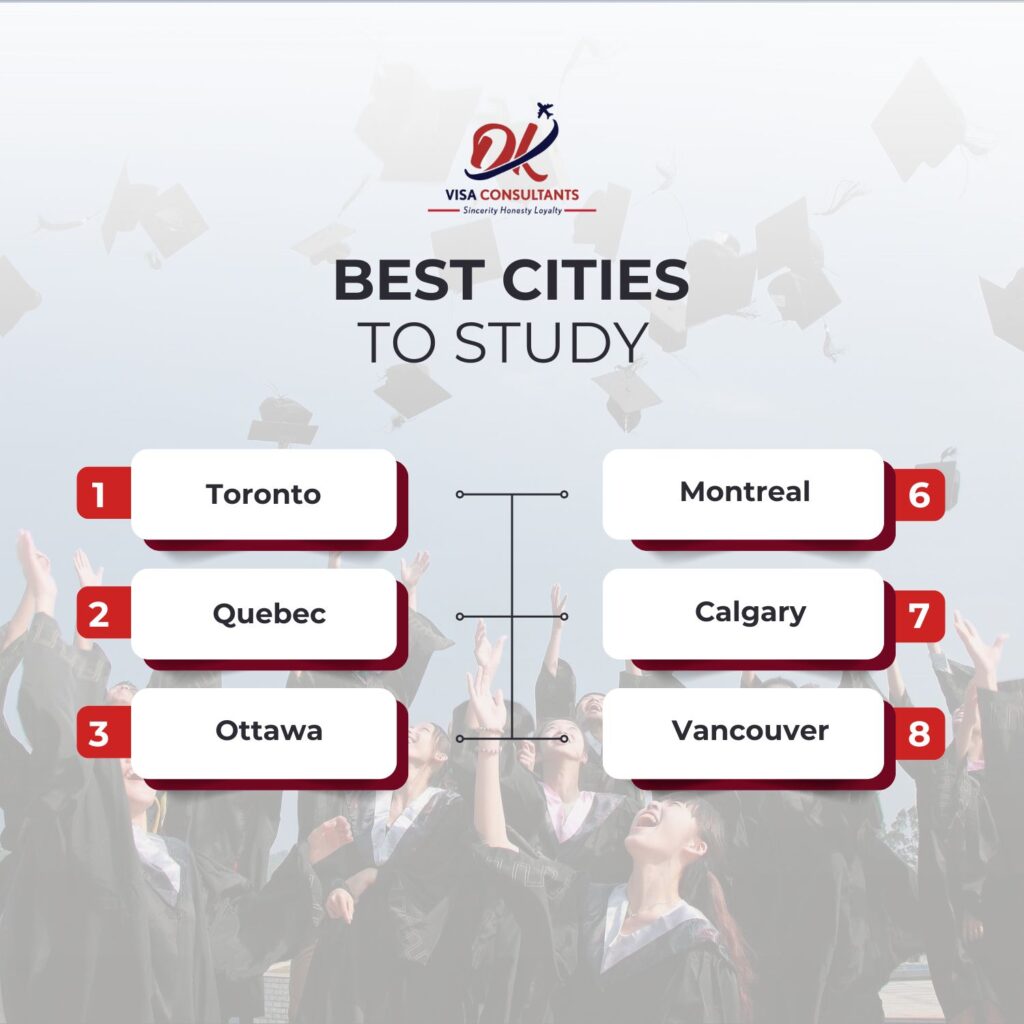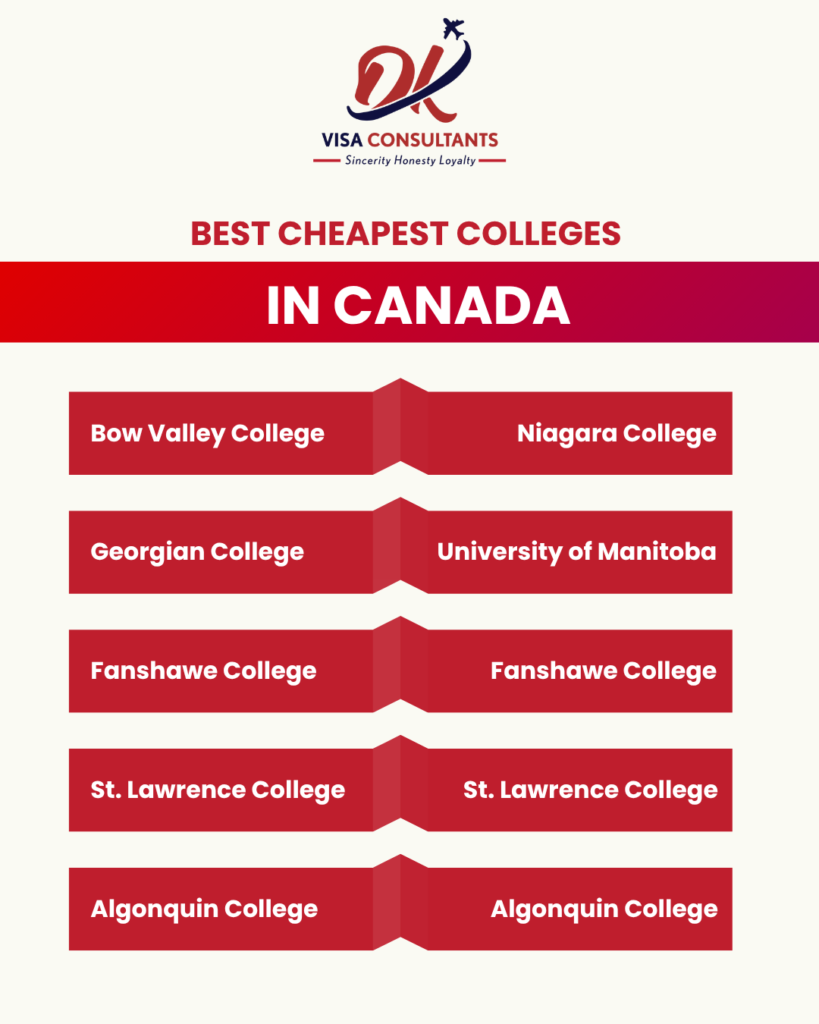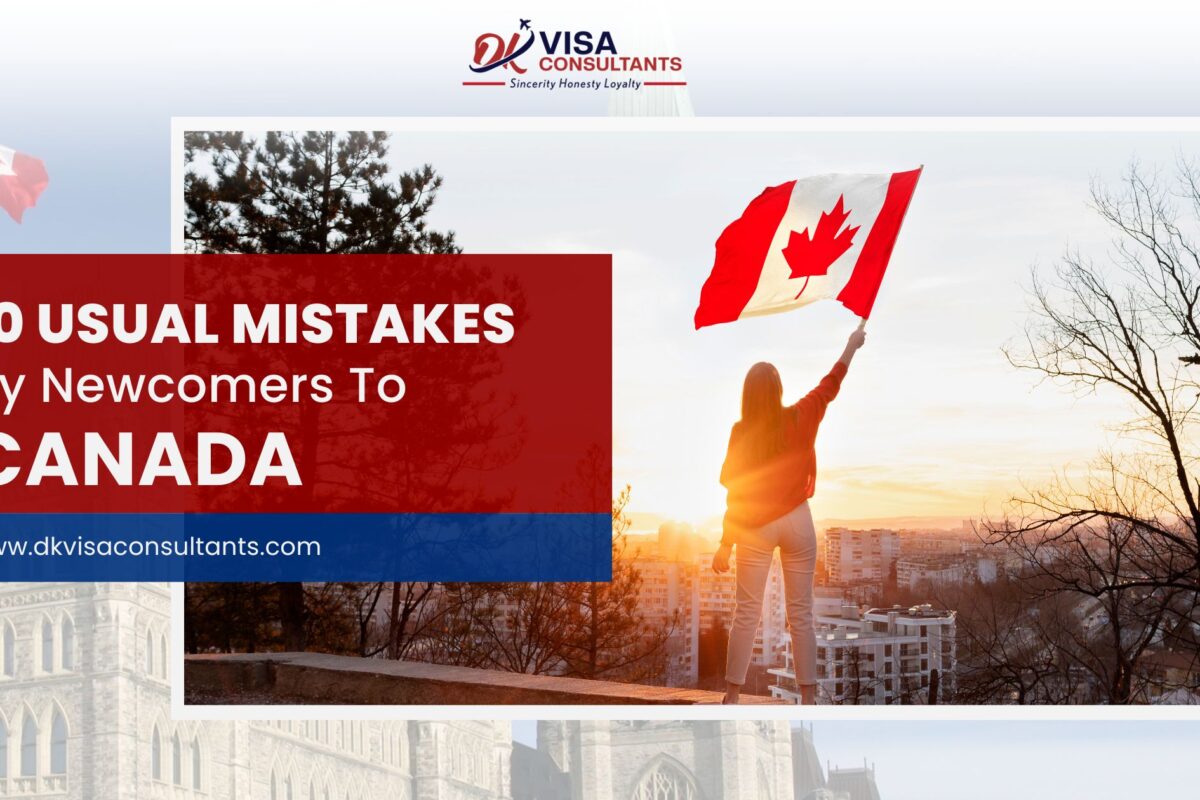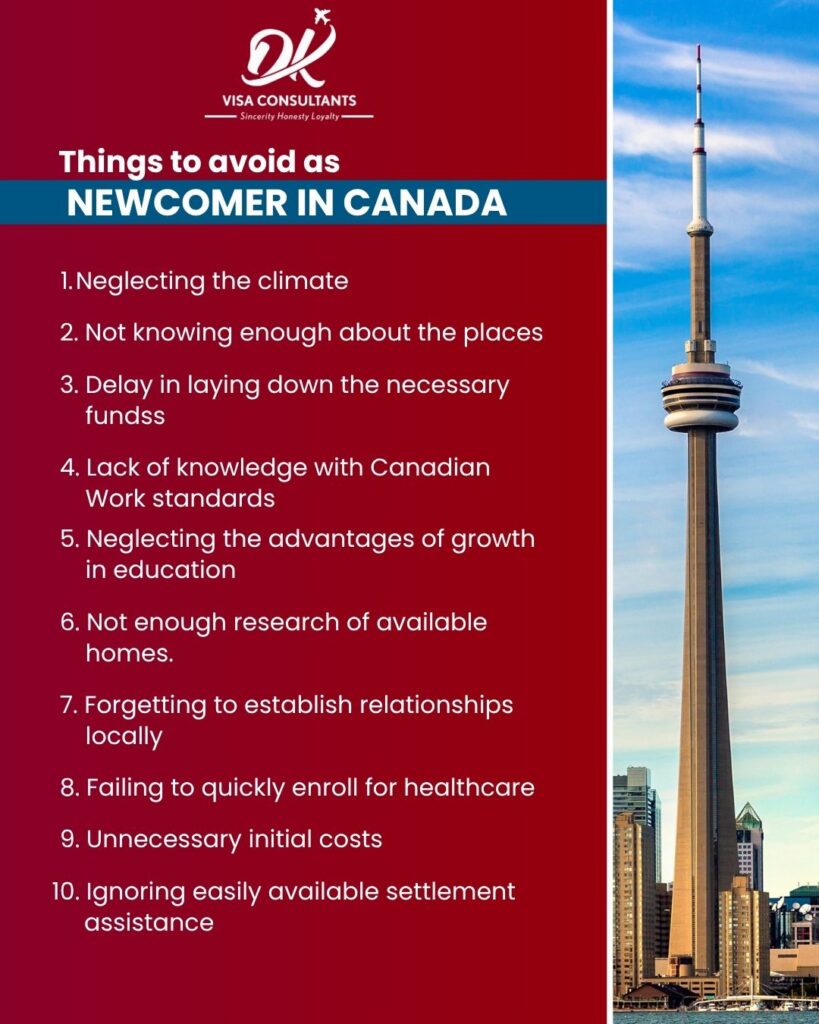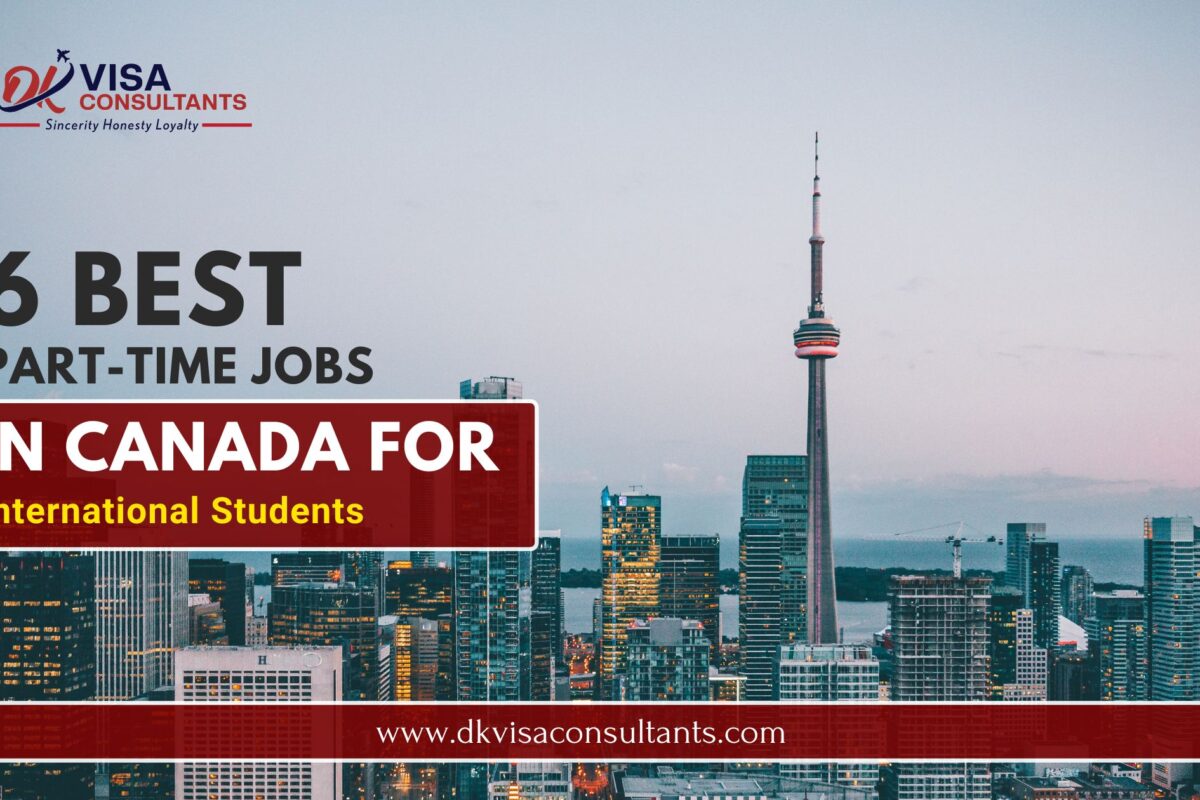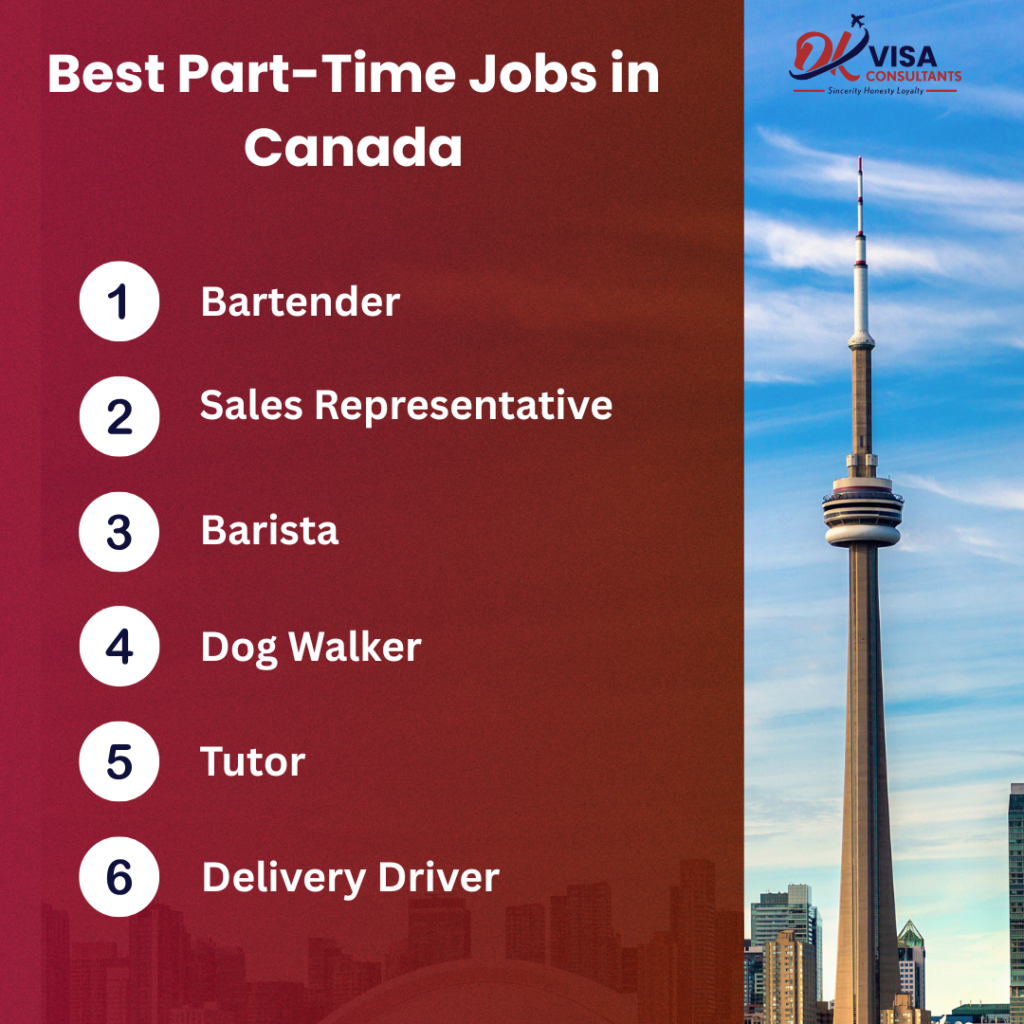For decades, the foreign dream of millions of students and working professionals revolved around three iconic destinations — Canada, United States (USA), and the United Kingdom (UK). These countries were considered the gold standards. In fact, Canada alone welcomed over 800,000 international students to study in 2023. Other than that the USA processed over 400,000 F-1 visas in the same year. The UK, post-Brexit, tried to bounce back by introducing the Graduate Route Visa in 2021, attracting over 600,000 international students.
But something has changed. As we enter 2025, the preferences of international students and skilled workers are shifting dramatically. A growing number of aspirants are now turning their attention towards alternative countries such as:
- Germany – For free education and the EU Blue Card route
- Australia – For its welcoming PR system and regional benefits
- New Zealand – For easy work visas and community support
- Dubai (UAE) – For rising academic institutions and fast-track job markets
- Other European countries – Like Ireland, France, Sweden, and the Netherlands, offering globally recognized degrees with more favourable migration options
But why this sudden change for these countries?
The answer lies in policy evolution — not in the favor of international migrants.
Over the past two years, many policy changes in Canada, the United Kingdom, and the United States that aimed to shore up domestic stability have paradoxically. These made them less attractive and less accessible to foreign students and foreign workers.
This blog dives deep into students planning to study their master’s abroad. An expert trying to earn his bread and stay settled in a foreign county; or a parent seeking options for his child’s future. This blog will give them all the insight they need to make an intelligent, educated choice.
1. Canada

Why Was Canada So Popular?
For years, Canada was the number one choice for Indian and international students because of its:
- Lower tuition than in the USA/UK
- Multicultural society that is welcoming
- Clear path from study-to-work-to-PR (Express Entry & PNPs)
- 3 years of PGWP for most programs
- Dependent’s work permit and visa support for spouse
But the image of Canada among candidates has started to get replaced drastically since 2024 and 2025.
Major Policy Changes (2024–2025)
1.Study permit cap introduced (after January 2024)
Canada introduced a national cap on the study permit, where the approval was almost brought down. 437,000 for 2025, reduction of 40% from 2023.
- Some provinces such as Ontario and British Columbia also met with a stator.
- Private colleges, especially people with public-private participation (PPP), are disorganized.
Effect: Thousands of students are now facing rejection even after receiving the proposal.
2. Economic requirements Increased
By January 1, 2024:
- Students must show evidence in CAD $ 10,000 to CAD $ 20,635 Guarantee Investment Certificate (GIC).
- Further evidence required for tuition fees, housing and living costs.
Effect: Many middle -class families find this new threshold ineffective.
3. Strict rules for PGWP (post -education)
- PGWP qualification is now limited to students of institutions that meet new federal norms.
- Graduates of many private colleges will no longer be eligible for work permits.
Effects: ROI reduced to students at non-run colleges, especially in business or diploma programs.
4. Dependent visa ban
Spouse and children can no longer be with students unless they are:
- A master, doctorate or professional program registered (eg medical, law)Study at high -ranked universities (not a career college)
Effect: Family -oriented students are now looking for alternative websites.
5. Long -lasting visa processing time and rejection
- The visa processing time has increased to 12-16 weeks in many cases.
- The rejection rate has increased for students applying for non-SDs or private colleges.
| Factors | Verdict |
| Visa Approval | Significantly reduced |
| Study Cost | Rapidly Increasing |
| Work Permit | Limited |
| PR Options | Low Chance |
2. USA (United States)

Why the Students Loved the USA
The United States has been the dream destination for international students for many reasons:
- World-class academic institutions such as MIT, Stanford, and Harvard
- Unparalleled environment for research and innovation
- STEM graduates are afforded up to 3 years of Optional Practical Training (OPT)
- Excellent and lucrative employment opportunities, especially in IT, health care, and finance.
What Changed in 2024 – 2025?
1.F-1 Visa Denial Rates
The F-1 visa denial rates for Indian students increased to over 38% in 2024 specifically for those applying to the lesser-known universities and community colleges.
Reasons: Faulty SOPs, weak academic background, suspected immigration intentions.
2. H-1B Visa:
- Most students apply for an H-1B after their OPT, which allows them to extend their stay and continue working in the U.S.
- Many students will apply for the H-1B visa under the lottery system, which allows only 85,000 candidates — far less than the number of applicants each year.
The sad reality is that even the top students from any U.S. institution may have to leave the U.S. if they do not hit the luck of the lottery.
3. Increased Digital & Security Review
- They tends to be improved scrutiny of social media accounts, digital activities, and political views during reviews of visa applications.
- Background checks themselves have intensified over the last few years since COVID and the recent geopolitical situation.
4. Living Cost & Education
| Item | Estimated yearly cost |
| Tuition | $25,000–$50,000+ |
| Living | $10,000–$20,000 |
| Health Insurance | $2,000–$3,000 |
Total Budget: ₹40–₹60 lakh for a 2-year master’s — without job guarantee.
3. United Kingdom (UK)

Why was the UK a top goal?
For a long time, the UK remained a large alternative for international students:
- Universities ranked globally (Oxford, Cambridge, LSE, UCL)
- 1 year old master program (cheap and small)
- Graduate Route Visa (2 years) introduced in 2021
- English -speaking environment
- London, Manchester, Birmingham as lively, multicultural cities
However, recent political changes in 2024 and 2025 have reduced the UK’s attraction, especially for students who want to settle families or bring families.
Major Policy Changes (2024–2025)
1.Graduate Route Visa cut by 18 months
- In mid -2024, the UK reduced the working visa after a stand from 24 months (2 years) to 18 months during the Confirmation Road.
Effect: Students now have less time to find jobs and apply for skilled workers visas. The pressure is high, especially for non-stalk candidates.
2. No dependent for the students of the master
From January 2024, international students taught master’s programs (eg MBA, MSC, MA) nominated can no longer bring dependent (spouses or children).
Only lower students can still bring families:
- PhD or doctoral students
- Government Scholarship Award winner
Effect: Students with families choose instead of Australia, New Zealand or Germany.
3. Professional work visa complexity
To stay and work in the UK after graduation, students need:
- Secure the job offer from a licensed sponsor from home
- Meet from salary limit (currently £ 26,200+ annual or £ 10.75/h)
- Proof English language skill and provide a sponsorship certificate (COS)
Reality: Many employers hesitate to sponsor international graduates, especially in non-technical areas such as trade, marketing or media.
4. High Living cost and limited part -time hours
- Tuition fee: £ 12,000- £ 25,000 per year
- Living expenses (London): £ 12,000- £ 15,000 per year
- Divide time: limited to 20 hours/week during the period
Combined cost = £ 30- £ 45 LAKH 1 year degree for a large investment for job prospects.
5. Slow PR (to remain indefinite leave) process
To apply for permanent stay in the UK:
- Applicants must live and work legally for 5 years in a row.
- Should be on skilled worker or similar qualified visa types.
- Strict rules on absence, income level and stability in jobs.
Compared to countries such as Australia or Germany, PR in the UK is slow, uncertain and closely regulated.
| Factor | Verdict |
| Visa Approval | High |
| Graduate Route | Reduced to 18 months |
| Dependent Access | Only for PhD students |
| Job Opportunities | Tough without sponsorship |
| PR Pathway | Long and complex |
4. Germany

The Rise in Popularity for Germany
Germany has become a top destination for students or professionals who value:
- Tuition-free or low-cost education.
- Good-quality public universities.
- Strong economy with demand for skilled talent.
- Access to the EU job-market.
- A path to permanent residency (and eventually citizenship) is easily reachable.
1.Free Tuition: World’s Best Universities
- Most tuition-free public universities exist in Germany, with no charges being levied by state universities, not even from international students.
- Students do have to pay a semester fee of around €250–€500 (₹25,000–₹45,000), which includes local transport.
- Every year, more programs are being offered in English in engineering, IT, management, data science, AI, and healthcare.
Cost comparison: Germany’s total year fee = ₹1–2 lakh Vs. Canada/UK/USA = ₹15–30 lakh or above
2. 18-month Job Seeker’s Visa after Graduation
- After students completes their studies, the German Government grants them an 18-month residence permit to find a job in their field.
- Students are allowed to work in any job during this period (even unrelated to their field of study) in order to support themselves while looking for a position.
- When they enter into a skilled job, they switch from the work visa and apply for an EU Blue Card.
3. Benefits of the EU Blue Card
Germany leads to the issuance of the EU Blue Card, a quick track work and a residence permit for the professionals in the non-European union.
Qualification for blue card:
- University degree (from Germany or abroad)
- Job offered with salary of at least € 43 800/year (abbreviation for deficiency stores such as IT, engineering science, medicine)
- Health insurance coverage
Benefits of blue card:
- Brings spouses with full time about labor rights
- Permanent way of residence in 21 months (with B1 language level)
- Freedom to work in the EU after 18 months
4. Increasing demand for skilled workers
Germany faces a lack of labor on a large scale, especially:
- Engineering (mechanical, power, civil).
- Information Technology (Data Science, Software, AI).
- Healthcare (doctor, nurse, physiotherapist).
- Skilled trade (plumber, electrician, technician).
5. Family-Friendly Immigration Rules
- Spouses can join on a dependent visa with unrestricted work rights.
- Children can access free public education.
- Language training and integration programs are supported by the government.
6. Permanent Residency & Citizenship
PR Eligibility:
- After 33 months of working on a Blue Card.
- After 21 months with German language skills (B1 level).
Citizenship:
After 5–6 years of legal residence and integration, you can apply for German citizenship — one of the most powerful passports globally.
7. Living Cost in Germany:
| Expense | Estimated Monthly cost |
| Rent (Shared/Student) | €300–€500 |
| Food & Transport | €250–€350 |
| Health Insurance | €100–€120 |
| Total | €700–€1,000 (₹60,000–₹90,000/month) |
5. Australia

Why Australia continues to attract thousands
Australia has proven to be a top level goal for international students who are not just looking for high quality education, but:
- Post -5 years of study rights
- Transparent, point-based PR system
- High visa approval rate for Indian students
- Family -friendly politics
- Regional incentive and further migration benefits
In 2025, it is one of the most reliable alternatives for those who want to study and settle abroad.
1.World-Class Education & Courses
Australia is home to top-ranked universities like:
- University of Melbourne
- University of Sydney
- Monash University
- University of Queensland
- Australian National University (ANU)
And it offers career-focused courses in:
- Nursing & Healthcare
- Information Technology & Cybersecurity
- Engineering (Civil, Mechanical, Software)
- Accounting & Finance
- Teaching & Education
- Construction & Skilled Trades
2. Generous Post-Study Work Rights (PSWR)
In 2025, Australia continues to offer one of the longest PSWR durations in the world:
| Level of Study | Post-Study Work Visa Duration |
|---|---|
| Bachelor’s Degree | 2 – 4 years (based on region) |
| Master’s Degree | 3 – 5 years |
| PhD | 6 years |
3. Benefits for Spouse & Dependent
- Spouses of Master’s or Doctoral students are allowed to work full-time
- Children can be enrolled in public schools with low fees
- Family members enjoy Medicare (public healthcare) in certain visa subclasses
Unlike Canada or the UK, dependent visas in Australia remain flexible and supportive in 2025.
4. Route to Permanent Residency (PR)
Australia’s points-based immigration system (SkillSelect) is one of the most transparent system.
PR Eligibility Factors:
- 1–2 years of Australian work/study experience, if its regional applicants will get more points.
- Age under 45 years
- High-demand occupation (based on Skilled Occupation List)
- At least 65 points (education, English, experience, state nomination, regional study, etc.)
- Competent to Proficient English (IELTS 6.0–7.0)
5. Tuition & Living Costs in Australia
| Expense | Annual Estimated cost (AUD) |
|---|---|
| Tuition Fees | $25,000 – $45,000 (₹13–24 lakh) |
| Living Costs | $20,000 – $25,000 (₹10–13 lakh) |
| Spouse Work Income | $50,000+ (full-time rights) |
6. Safety, Culture, and Lifestyle
- Ranked as one of the safest countries for international students
- The nation has multicultural society.
- Great weather, beaches, public transport, and student support services.
- The availability for part-time job are in hospitality, retail, and technology sector.
6. New Zealand

Why New Zealand Is Attractive to International Students
While frequently in the shadow of its large neighbor Australia, New Zealand is quietly emerging as a study and migration choice due to:
- Easy visa application with high success rates
- Availability of plentiful post-study work options
- Friendly, peaceful way of life with minimal competition
- Proactive and achievable PR streams
- Sustained talent needs in healthcare, IT, engineering, and trades
In 2025, students are acknowledging New Zealand as a high-reward, low-risk country to create a future.
1.Quality Education with Global Recognition
Top universities like:
- University of Auckland
- University of Otago
- Victoria University of Wellington
- University of Canterbury
Also offer globally ranked programs in:
- Nursing, Public Health, and Aged Care
- IT, Cybersecurity, and Data Science
- Construction, Civil Engineering, and Trades
- Business, Agribusiness, and Tourism
Education is practical, job-focused, and designed to support skill gaps in New Zealand’s labour market.
2. Post-Study Work Visa (Up to 3 Years)
- Upon completing eligible qualifications, students can apply for a Post-Study Work Visa
- Duration depends on level of study and location
| Qualification | Location | PSWV Duration |
|---|---|---|
| Bachelor’s or Master’s | Anywhere | 3 Years |
| Level 7 Diplomas | Designated Areas | 1–2 Years |
| PhD | Anywhere | 3 Years |
3. Full Family Support
- Spouses of postgraduate students are eligible to apply for open work visas
- Domestic students (free or very low fee) are eligible to study in public schools by children
- The nation has one of the most stable settings for family settlement.
4. Safe, Simple & Serene Lifestyle
- One of the safest nations in the world
- Low population density = limited competition
- Stunning landscapes, welcoming locals, tranquil lifestyle
- Work-life balance is highly cherished
5. Tuition Fees & Living Costs
| Item | Average Annual Cost (NZD) |
|---|---|
| Tuition Fees | $22,000–$35,000 (₹11–18 lakh) |
| Living Expenses | $15,000–$18,000 (₹7–9 lakh) |
| Spouse Work Income | $45,000–$60,000 per year |
6. High Demand Occupations in 2025
New Zealand faces shortages in many areas:
- Agriculture & Food Technology
- Healthcare (nurses, doctors, caregivers)
- IT & Tech (software developers, analysts)
- Engineering & Construction
- Education (ECE and school teachers)
Clear and Defined PR Pathway
New Zealand has two primary PR pathways for international students:
Skilled Migrant Category (SMC) Visa
- Needs 180+ points (age, qualification, job offer, experience)
- Needs a skilled job offer (full-time, permanent)
- Can apply after 1–2 years of appropriate NZ work experience
Green List Pathway (2023–2025)
- Fast-track PR for certain occupations
- Fields include:
- Registered Nurses
- Civil Engineers
- Early Childhood Teachers
- Software Engineers
- Electricians & Plumbers
7. Dubai

Why UAE Is Gaining Massive Popularity in 2025
The UAE — especially Dubai and Abu Dhabi — has become a magnet for international students and skilled professionals because of:
- Fast and simple visa processes
- A booming job market in tech, logistics, healthcare, finance & tourism
- Prestigious foreign universities with local campuses
- 10-year Golden Visa for eligible graduates and workers
- Tax-free income, high salaries, and no language barrier
In 2025, UAE is no longer just a travel or business destination — it’s now seen as a realistic alternative to Canada, UK, and USA for building a future abroad.
1. World-Class Education at Lower Cost
Over the past decade, the UAE has attracted top global universities to open satellite campuses in Dubai and Abu Dhabi, including:
- Manipal Academy of Higher Education (Dubai Campus)
- University of Birmingham Dubai
- Heriot-Watt University
- Middlesex University
- Murdoch University
Benefits for Students:
- Globally accredited degrees
- Shorter programs (1–3 years)
- English-taught curriculum
- Industry tie-ups and guaranteed internships
- Fast-track career placement in the Gulf region
Tuition Fees: AED 30,000–70,000/year (₹7–15 lakh)
Living Costs: AED 25,000–35,000/year (₹5.5–8 lakh)
Costs are competitive, often lower than the UK and USA, and job opportunities are closer than anyone think.
2. Strong Job Market & Industry Demand
The UAE’s economy is diversifying rapidly, with government investment in:
- Tech & AI
- Healthcare
- Logistics & Supply Chain
- Construction & Real Estate
- Tourism & Aviation
- Finance & Business
Job Roles in Demand (2025):
- Software Developers
- AI Engineers
- Nurses & Radiologists
- Business Analysts
- Aviation & Hospitality professionals
- Marketing & E-commerce experts
Many students get placed within 6 months after graduation due to Dubai’s strong industry-academic collaboration.
3. Fast Visa System + Golden Visa Advantage
Student Visa
- Easy to obtain for full-time courses
- Renewable yearly
- Includes work opportunities (part-time jobs + internships)
Work Visa
- Available in 4–6 weeks
- Sponsored by employers
- Easy processing with employer support
Golden Visa (10 Years)
- Offered to:
- High-achieving students
- Professionals earning AED 30,000/month+
- Entrepreneurs, investors, researchers
- Offers long-term security, sponsor-free residency, and family inclusion
4. Family-Friendly & Indian Community Support
- No language barriers – English & Hindi widely spoken
- Spouses and children can accompany residents easily
- Large Indian community (over 3.5 million Indians in UAE)
- Indian curriculum schools (CBSE/ICSE) widely available
5. Income, Tax & Lifestyle Advantages
| Benefit | UAE vs. West |
|---|---|
| Income Tax | 0% in UAE (vs. 20–35% in Canada, UK, USA) |
| Salaries | Competitive or higher in IT, healthcare, finance |
| Cost of Living | Moderate (can be shared with roommates) |
| Lifestyle | Ultra-modern, safe, clean, and global |
- Women can travel and work safely
- Public transport, metro systems, and roads are world-class
- Entertainment, events, and luxury are part of daily life
Final Comparison: Which Country is Best in 2025?
| Feature / Country | Canada | USA | UK | Germany | Australia | New Zealand | UAE (Dubai) |
|---|---|---|---|---|---|---|---|
| Tuition Fees | High | Very High | High | Low/Free | Moderate–High | Moderate | Moderate |
| Post-Study Work Visa | Limited (PGWP changes) | OPT, risky | 18 months | 18 months | Up to 5 years | Up to 3 years | Work with Study + Job visa |
| PR Opportunities | Delayed, competitive | Complex, no direct path | Long, strict | Clear (Blue Card) | Transparent, fair | Green List route | Golden Visa (selective) |
| Family Support | Limited in 2025 | Moderate | Restricted (no dependents for most) | Strong | Excellent | Excellent | Very strong |
| Language Barrier | No | No | No | German needed (for PR/jobs) | No | No | No |
| Living Costs | High | Very High | High | Affordable | Moderate–High | Moderate | Moderate |
| Job Demand | Shrinking in some areas | Strong but saturated | Shrinking | High (tech, health, engg.) | Very High | High | Rapidly growing |
| Settlement Stability | Moderate | Uncertain | Risky | High | Very High | High | High (esp. Golden Visa holders) |
| Visa Approval Rates | Falling (cap, rejection) | Very competitive | High | High | High | Very High | High & fast |
Conclusion
In 2025, the migration landscape is shifting dramatically. While countries like Canada, USA, and UK still hold prestige, they’ve become less accessible, more restrictive, and costlier than ever before — especially for students and families looking to settle long-term.
On the other hand, countries like: Germany, Australia, New Zealand and UAE/ Dubai are proving to be smart, stable, and affordable alternatives.
Still can’t decide which country to choose! Visit or call DK Visa Consultant, our experts will provide you proper guidance according to your profile and will help to fulfil your dreams of study abroad or Permanent residence.
FAQ
Q1. Is Canada still a good option for study in 2025?
Ans: Yes, but only for highly qualified students with strong academics and finances. Due to study permit caps and PGWP restrictions, Canada is now more selective and less settlement-friendly.
Q2. Which country is best for permanent residency after study?
Ans: Australia and Germany are leading choices. Australia offers a transparent PR system, while Germany provides a fast-track Blue Card route. New Zealand is also highly PR-friendly.
Q3. Can I bring my spouse and kids during studies?
Ans: Yes, in Australia, New Zealand, Germany, and UAE only. Canada and UK have restricted dependent visas (especially for master’s courses in the UK).
Q4. Is Dubai a good option for long-term settlement?
Ans: Yes, especially through work-based migration or the Golden Visa for professionals. Dubai offers high-paying jobs, a large Indian community, and tax-free income.
Q5. Which country has the highest visa success rate for Indians in 2025?
Ans: New Zealand, Australia, and Germany currently have the highest approval rates, especially for genuine students with strong profiles.
Q6. Which destination offers the best ROI (Return on Investment)?
Ans: Germany (free education), UAE (tax-free jobs), and New Zealand (affordable study + PR pathway) offer the highest ROI in 2025.
Q7. Is English enough to survive in Germany or Dubai?
Ans: Yes. Most German universities offer English-taught programs. For jobs, German helps but is not mandatory. In Dubai, English is widely spoken.



